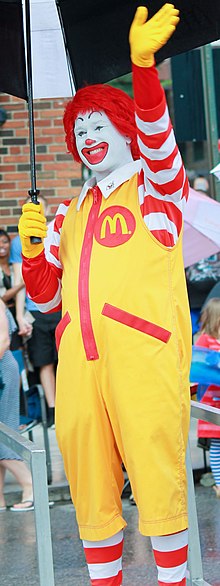
A clown is a person who performs comedy and arts in a state of open-mindedness using physical comedy, typically while wearing distinct makeup or costuming and reversing folkway-norms. Clowns have a varied tradition with significant variations in costume and performance. The most recognisable clowns are those that commonly perform in the circus, characterized by colorful wigs, red noses, and oversized shoes. However, clowns have also played roles in theater and folklore, like the court jesters of the Middle Ages and the jesters and ritual clowns of various indigenous cultures. Their performances can elicit a range of emotions, from humor and laughter to fear and discomfort, reflecting complex societal and psychological dimensions. Through the centuries, clowns have continued to play significant roles in society, evolving alongside changing cultural norms and artistic expressions.
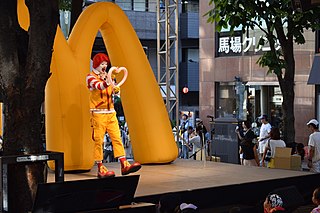
McDonaldland is a McDonald's media franchise and the fictional fantasy world inhabited by Ronald McDonald and his friends. Starting with the creation of Ronald McDonald in 1963, it is primarily developed and published by McDonald's. Initial attempts to expand the McDonaldland universe by marketing agency Needham, Harper & Steers were seemingly retconned due to legal issues, but ongoing aspects were expanded in McDonald's projects in collaboration with Data East, Virgin Interactive, Treasure, SEGA, and Klasky Csupo.

Bozo the Clown, sometimes billed as "Bozo, The World's Most Famous Clown", is a clown character created for children's entertainment, widely popular in the second half of the 20th century. He was introduced in the United States in 1946, and to television in 1949, later appearing in franchised television programs of which he was the host, where he was portrayed by numerous local performers.
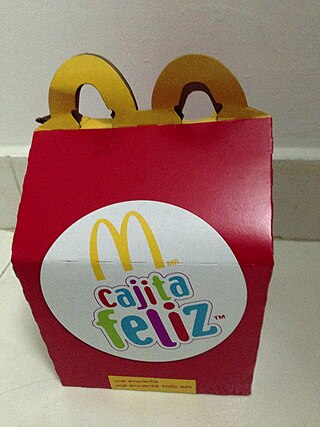
A Happy Meal is a kids' meal usually sold at the American fast food restaurant chain McDonald's since June 1979. A small toy or book is included with the food, both of which are usually contained in a red cardboard box with a yellow smiley face and the McDonald's logo. The packaging and toy are frequently part of a marketing tie-in to an existing television series, film or toyline.

Willard Herman Scott Jr. was an American weather presenter, radio and television personality, actor, narrator, clown, comedian, and author, whose broadcast career spanned 68 years, 65 years with the NBC broadcast network. Scott is best known as a weather reporter on NBC's Today show where he also celebrated US centenarian birthdays and notable anniversaries. Scott was the creator and original performer of McDonald's mascot clown Ronald McDonald.
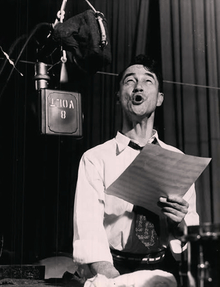
Vance DeBar Colvig Sr., known professionally as Pinto Colvig, was an American voice actor, cartoonist, and circus and vaudeville performer whose schtick was playing the clarinet off-key while mugging. Colvig was the original performer of the Disney characters Goofy and Pluto, as well as Bozo the Clown. In 1993, he was posthumously made a Disney Legend for his contributions to Walt Disney Films, including Snow White and the Seven Dwarfs and Fun and Fancy Free.

Nicolai Poliakoff OBE was the creator of Coco the Clown, arguably the most famous clown in the United Kingdom in the mid-20th century.
Lawrence Weiss, better known by the stage name Larry Harmon and as his alter ego Bozo the Clown, was an American entertainer. Weiss had four children, including filmmaker Jeff Harmon.

M.C. Kids is a 1992 platform video game developed and published by Virgin Interactive. It was initially released for the Nintendo Entertainment System in February 1992 in North America, and by Ocean Software in May 1993 in Europe. As a licensed product for the McDonald's fast food restaurant chain, the game stars two children named Mack and Mick who venture into the fantasy world of McDonaldland in order to return Ronald McDonald's magical bag which has been stolen by the Hamburglar. The game was created by four people in eight months: Darren Bartlett Gregg Iz-Tavares and Dan Chang (programming) and Charles Deenen (audio).

Donald Land (ドナルドランド) is a 1988 platform video game produced by Data East in association with the McDonald's Corporation for the Family Computer, based on the McDonaldland franchise.

The Bozo Show was a locally produced children's television program that aired on WGN-TV in Chicago and nationally on what is now NewsNation. It was based on a children's record-book series, Bozo the Clown by Capitol Records. The series is a local version of the internationally franchised Bozo the Clown format and is also the longest-running in the franchise. Recognized as the most popular and successful locally produced children's program in the history of television, it only aired under this title for 14 of its 40+ years: other titles were Bozo, Bozo's Circus, and The Bozo Super Sunday Show.
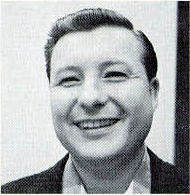
Roy Thomas Brown was an American television personality, puppeteer, clown and artist known for playing "Cooky the Cook" on Chicago's Bozo's Circus.

Leonard Weinrib was an American actor, comedian and writer. He is best known for playing the title role in the children's television show H.R. Pufnstuf, Grimace in McDonaldland commercials, the title role in Inch High, Private Eye, the original voice of Scrappy-Doo on Scooby-Doo and Scrappy-Doo, Hunk and Prince Lotor on Voltron, and Bigmouth on The Smurfs. He also was the voice for Timer in the "Time for Timer" ABC public service announcements in the early 1970s.

McDonald's Treasure Land Adventure is a 1993 platform game developed by Treasure and published by Sega for the Sega Genesis. Based on the McDonald's fast food restaurant chain, specifically its McDonaldland marketing campaign, players control Ronald McDonald in his efforts to retrieve the missing pieces of a map that lead to the location of a buried treasure from a group of villains. Ronald can defeat enemies by using a magic attack and can latch onto hooks with his scarf to reach higher platforms.

Squire Fridell is an American retired actor, author, and winemaker who appeared in over three thousand television commercials; he also appeared as Ronald McDonald in McDonald's commercials from 1985 to 1991.

Don Sandburg was an American writer, actor, and producer who worked in television, most notably as producer of The Banana Splits for Hanna-Barbera as well as WGN-TV's Bozo's Circus.
The Teenie Beanies are miniature Beanie Babies that were offered as McDonald's promotions in Happy Meals from 1997-2000.

The Wacky Adventures of Ronald McDonald is an American animated mini-series of retail direct-to-video episodes produced by Klasky Csupo in association with the McDonald's Corporation, centering on McDonald's mascot Ronald McDonald and the gang in McDonaldland. A total of six 40-minute episodes were produced and released on VHS with five of them being available exclusively in participating McDonald's restaurants from October 9, 1998 to January 30, 2003.
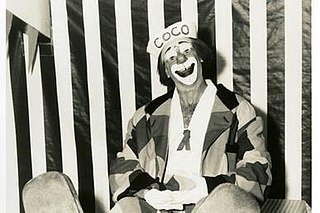
Michael Polakovs was a Latvian-born American circus clown and actor, who performed in the US under the name of Coco the Clown, a moniker that his father, Nicolai Poliakoff, had made famous in Europe.

The Grimace Shake was a berry-flavored milkshake sold at McDonald's restaurants in the United States from June 12 to July 9, 2023. The Grimace shake celebrated the 52nd birthday of Grimace, the purple milkshake-loving character from McDonaldland.
